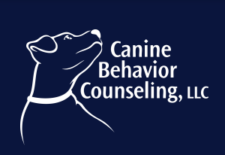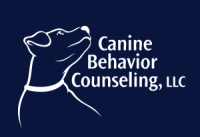 If you are enjoying the beginning of 2014 with a soft cuddly new puppy, then congratulations! As the owner of a new puppy, you have some responsibility to the puppy and to those who come in contact with your new puppy. While you must certainly be enjoying the new puppy smells, sounds and soft fur, you may also be a bit tired from late night potty trips outside, managing all the winter gloves and hats that puppies love to chew on, and you may possibly have a few scratches from your pups needle sharp teeth.
If you are enjoying the beginning of 2014 with a soft cuddly new puppy, then congratulations! As the owner of a new puppy, you have some responsibility to the puppy and to those who come in contact with your new puppy. While you must certainly be enjoying the new puppy smells, sounds and soft fur, you may also be a bit tired from late night potty trips outside, managing all the winter gloves and hats that puppies love to chew on, and you may possibly have a few scratches from your pups needle sharp teeth.
First, it is very normal for your puppy to mouth you as that is how dogs gain information about things near them. If you have ever watched two dogs play, they often use their mouth during the interaction. The primary puppy behaviors you need to teach your puppy? 1. Not to bite humans, called “bite inhibition” 2. Potty training, for your own sanity. 3. Calm behaviors, as everyone loves a pup with good emotional control 4. Socialization to a variety of places, people and dogs in a positive way. Finally, prevention of guarding and becoming overly mouthy, as these two behaviors can lead to an unwanted bite.
There are numerous Certified Pet Dog Trainers who can help you teach your pup appropriate behavior to succeed in a human home. Using Positive Reinforcement Communication and lots of patience, you will eventually have a wonderful family dog. To find a Certified Pet Dog Trainer in your area, investigate this link: CCPDT Certification for Pet Dog Trainers
I have 3 basic rules that I use often with new puppy owners:
1. Manage your pup so it is not practicing any unwanted behaviors. For example, use a crate or x-pen to contain your pup if you can not watch him. This is not only for his safety, but so he does not learn how good it is to chew on your favorite boots.

2. Reward your dog all day long for appropriate behaviors. Example, if you are going to let your pup out of his crate, then put your hand on the latch, if your puppy is calm open the crate and reward with freedom. If however he climbs on the door and barks at you. Take your hand off the latch and wait. When your puppy is calm or sitting, then you can open the door, if he tries to bolt out, close the door quickly, and wait until he sits or is calm, then reward with freedom!
3. Show your puppy what it is you prefer he do and reinforce it with something. For example, if your puppy bites on your hand, remove your hand and quickly replace it with a toy. Move the toy around on the floor and praise your puppy when he chases, and mouths the toy. If he bites your hand or arm let him know it hurts and replace it with a toy.
Keep in mind your puppy has been using his mouth to play with his siblings for weeks, so he is conditioned to do so. It is your job to help him learn good bite inhibition and socialize him well with new places, people and allow him to play with other puppies to help him learn good social skills.
In this photo to the right, the 13 week old Malamute started to bark at the 4 year old Dachshund. This Dachshund is not happy about having to potty in 10 degree weather and so is not interested in playing. He signals this to the pup by closing his mouth, freezing his body, making direct eye contact and then begins to give a low growl directed at the puppy. The young pup quickly began to back away and go look for another playmate. Helping this Malamute have good social skills is important as we do not want him to grow in to a large bully.
To ensure your puppies behavior is shaped to be a calm family pet, consider a puppy socialization class taught by a professional! CBC Puppy Class Schedule

